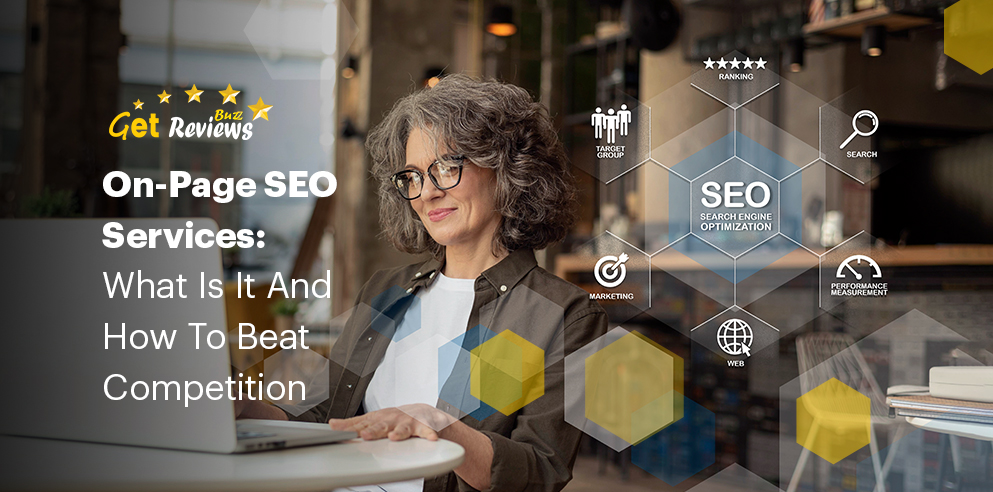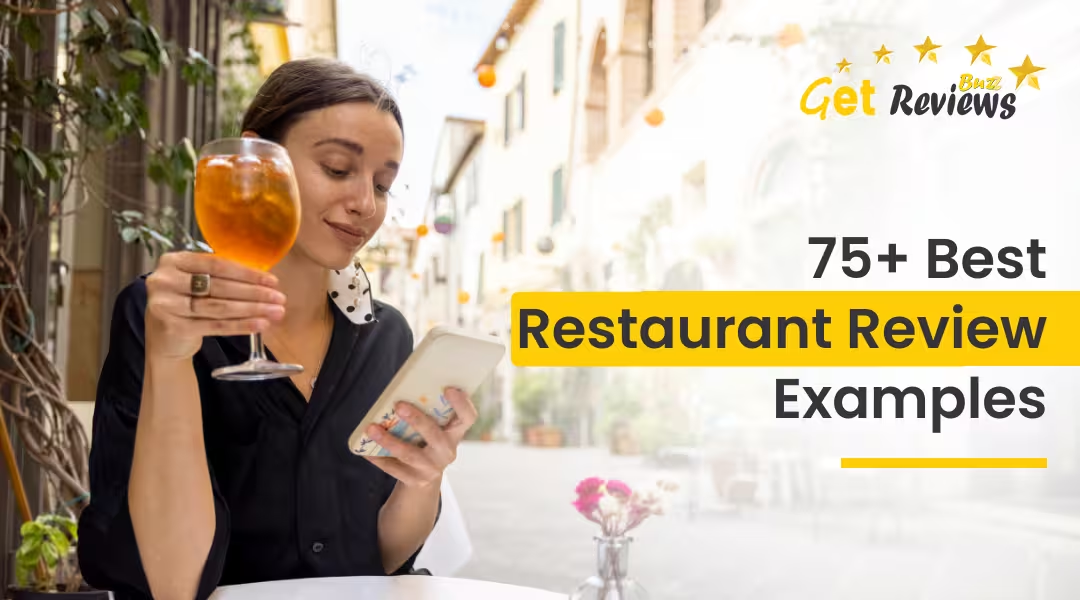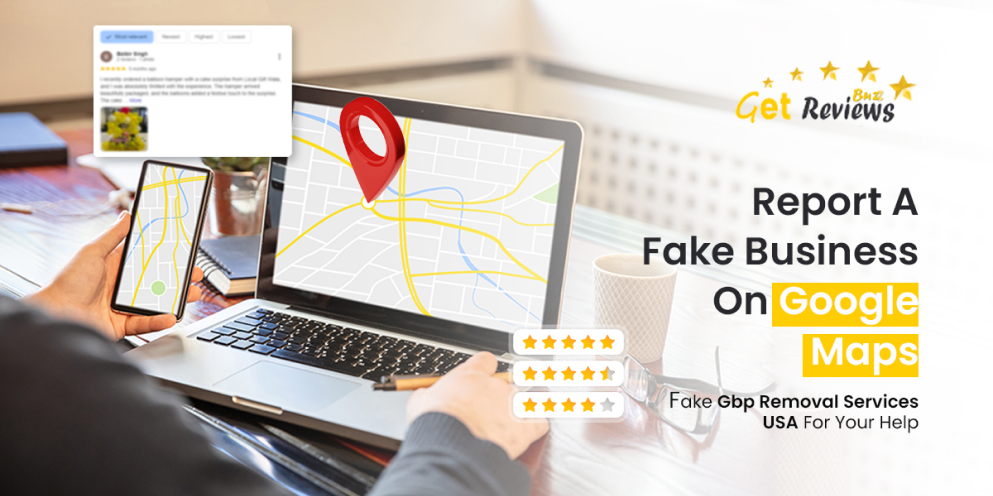Learn how to optimize your website with on-site SEO (Search Engine Optimization) services and what you can do better than your competitors and excel over them.
On-page optimization has the power to bring more traffic and potential customers right to your website. Additionally, it is up to you how you explain and define the content and topic for each of your pages. Thus, you get to decide your target audience and the relevant keywords and phrases that need to be used on the website.
Let us look at some statistics that can help you understand the dynamic power of on-page SEO services.
- Organic search is the top contributor to bringing the most traffic to websites.
- A top spot on Google's first page translates to a 39.8% organic click-through rate.
- Average clickthrough rates between the top organic and paid search results are 19 times higher.
- A post's click-through rate is 45% greater when the URL includes the target keywords or closely related terms than when it doesn't.
These facts can be mind-blowing and intimidating at the same time. If you are unsure how to get started, read this blog to understand on-page SEO. Moreover, it will help boost your website and take you further than your competitors. Let us get started with the basics.
What Is On-Page SEO?
On-page SEO, or on-site SEO, involves enhancing a website's visible and technical aspects to improve its search engine ranking and attract organic traffic. This optimization encompasses content refinement, site structure enhancement, and the optimization of HTML elements like meta tags.
By fine-tuning these elements, websites can become more accessible and relevant to search engine algorithms, leading to higher visibility in search results. Effective on-page SEO practices help websites cater to users and search engines, ultimately driving more organic visitors and improving online visibility.
How Are Off-Page SEO And On-Page SEO Different?
On-page SEO focuses on optimizing content and elements within a website to enhance its search engine visibility. This includes keyword optimization, meta tags, and user-friendly navigation.
On the other hand, off-page SEO deals with factors external to the website, like backlinks and social media presence, that influence its authority and reputation.
Meanwhile, technical SEO involves optimizing the website's infrastructure and performance, ensuring it's easily accessible and user-friendly, including site speed and structured data.
These three components form a holistic strategy to improve a website's search engine ranking and online presence.
On-page SEO is important as it conveys essential information to Google regarding your website's content and how it adds value to visitors and customers. This optimization process ensures your site is well-suited for human users and search engine crawlers.
Mere creation and publication of a website fall short; you must fine-tune it for Google and other search engines to secure better rankings and draw in new traffic.
On-page SEO refers to changes and improvements made directly to the visible parts of your website. This is different from off-page and technical SEO, which may not always be clear to site visitors.
Every facet of on-page SEO is under your control, underscoring the importance of executing it accurately. Now, let's delve into the components of on-page SEO.
What Are On-Page SEO Elements?
Here are 10 elements that you should know about in On-Page SEO.
- High content on the page
- Headers
- Page Title
- Image alt-txt
- Page URLs
- Structured Markup
- Mobile responsiveness
- Site Speed
- Meta Descriptions
- Internal Linking
However, these elements fall into three categories:
- Content Elements
- HTML Elements
- Site Architecture Elements
Let us look at each of them in a bit more detail.
Content Elements
Content elements encompass the components of your website's copy and content. In this section, our primary focus will be crafting top-tier page content that benefits your site's visitors and conveys to Google that your website offers substantial value.
1. Exceptional Page Content
On-page SEO is built around the page content, which tells search engines and people what your website and business are all about. The initial step towards producing outstanding content is the selection of pertinent keywords and topics.
To achieve this, embark on keyword research by conducting Google searches for relevant terms and examining the content that emerges from competitors and other websites. Additionally, you can utilize tools such as Ahrefs, AnswerthePublic, Google Search Console, and UberSuggest for assistance in this endeavor.
Here are some recommended strategies to enhance the quality of your webpage content.
- Seamlessly integrate both short and long-tail keywords.
- Enhance your content with captivating and pertinent visual elements.
- Tailor your writing to suit your unique buyer persona(s).
- Actively address and resolve your audience's issues.
- Create content that encourages sharing and earns backlinks.
- Maximize conversions through compelling Calls To Action (CTAs), directing users to offers and product pages.
HTML Elements
HTML elements are the components found within your source code.
Please Note: To view the source code of any webpage in your browser, select View -> Developer -> View Source from the top menu.
2. Optimizing Page Titles for SEO
Page titles, also referred to as title tags, hold a pivotal role in effective SEO strategies. They serve as informative signposts for visitors and search engines, conveying the content of the respective web pages.
To ensure that your web pages are aligned with the right search intent, it's crucial to incorporate the focal keyword for each page into its title. Strive for a seamless integration of keywords into the title while maintaining a natural tone. Here are some recommended practices when crafting page titles:
Keep it concise: Google's latest update suggests keeping page titles under 60 characters to ensure proper display. While there isn't an exact character limit, Google's display titles max out at 600 pixels. Staying within the 60-character limit ensures that your title won't get truncated in search results.
Avoid keyword stuffing: Overloading your title with keywords leads to an unpleasant and spammy reading experience and risks penalties from modern search engines. These engines can detect and penalize content that appears artificially saturated with keywords.
Maintain relevance: Your page title should accurately represent the content of the page it's associated with. Misleading titles can confuse users and search engines, potentially harming your SEO efforts.
Avoid excessive capitalization: Writing titles in all capital letters should be avoided. It looks unprofessional and can also be interpreted as shouting in online communication.
Following these best practices, you can create compelling page titles that enhance your website's search engine visibility and provide a better user experience.
3. Headers
Header tags, also known as body tags in HTML, encompass elements such as <h1>, <h2>, <h3>, and more.
These tags play a vital role in structuring your content for readers and search engines, aiding in identifying the most significant and pertinent portions based on search intent.
When using header tags, it is advisable to include essential keywords, although they should differ from those used in your page title. Prioritize your most crucial keywords within the <h1> and <h2> headers.
4. Meta Descriptions
Meta descriptions are brief page summaries displayed beneath search result titles. While not an official search engine ranking factor, they influence whether your page garners clicks, making them vital for on-page SEO.
Furthermore, meta descriptions can be shared on social media via structured markup, potentially boosting Click-Through Rates.
A high-quality meta description adheres to the following guidelines:
- Stay within 160 characters, although Google occasionally permits longer descriptions. Ensure your entire keyword or keyword phrase is included.
- Craft a complete and engaging sentence or two.
- Steer clear of alphanumeric characters such as —, &, or +
5. Image Alt-Text
Alt-text for images serves as the SEO counterpart for your visual content. It plays a crucial role in informing search engines, including Google, about the content and purpose of your images. This is particularly significant as Google now presents nearly as many image-based search results as text-based ones.
Consequently, your potential audience might stumble upon your website through image searches. To facilitate this discovery, it's imperative to incorporate alt-text for your images.
Here are some key considerations to remember when crafting image alt-text:
- Ensure it is descriptive and precise.
- Maintain contextual relevance to the overall content of the page.
- Keep it concise, with a limit of 125 characters.
- Exercise restraint with keywords, avoiding excessive keyword stuffing.
6. Structured Mark-Up
Structured markup, also known as structured data, involves enhancing your website's source code to facilitate Google's ability to locate and comprehend various components of your content.
This is pivotal in generating featured snippets, knowledge panels, and other content highlights that appear in Google search results. Furthermore, when shared on social media, it is responsible for the clean and organized presentation of your page's details.
Please note: Although structured data is classified as technical SEO, it is included here because it enhances the on-page user experience for website visitors.
Site Architecture Elements
Elements of website architecture encompass the components comprising your website and its individual pages. Organizing your website's structure is crucial to facilitating smooth page crawling by search engines, notably Google.
7. Page URLs
Your page URLs must be designed for easy comprehension by human readers and search engine algorithms. Moreover, maintaining consistency in your site's hierarchy becomes pivotal as you generate subpages, blog entries, and other internal page variations.
For instance, dissecting the URL mentioned above, "services" represents the sub-domain, "getreviews.buzz" denotes the core domain, and "on-page-SEO" pinpoints the specific path leading to that particular website page.
Here are some valuable tips for crafting SEO-friendly URLs:
- Eliminate superfluous and redundant words.
- Utilize one or two relevant keywords.
- Opt for HTTPS, if feasible, since Google now regards it as a favorable ranking factor.
8. Internal Linking
Internal linking involves creating internal links within your website's content that connect to other relevant pages. (Notice how "on-page SEO" is linked to the website service page in the next sentence.) (That serves as an illustration.)
Internal linking holds significance in on-page SEO because it can direct readers to additional pages within your website. This practice encourages visitors to explore your site further, indicating to Google that your website offers valuable and helpful content.
Moreover, the extended duration visitors spend on your website gives Google more time to crawl and index your web pages. This, in turn, enables Google Analytics to assimilate more information about your website, potentially leading to improved rankings in search engine results.
9. Mobile Responsiveness
Google has shifted its preference towards websites optimized for quicker mobile loading times, extending this preference even to desktop searches.
Therefore, the importance of this is something which none can ever overstate.
Selecting an appropriate website hosting service, designing your site, choosing a theme, and arranging content to ensure readability and ease of navigation on mobile devices have become paramount. If you are uncertain about your website's mobile compatibility, consider employing Google's Mobile-Friendly Test tool for verification.
10. Site Speed
Whether your website is accessed on a mobile device or desktop, it must load swiftly. When it comes to on-page SEO, page speed is an extremely important factor.
Google prioritizes the user experience of the search queries above all else. If your website loads slowly or inconsistently, chances are your visitors will leave, and Google takes note of this. Furthermore, the speed of your site can significantly impact your conversion rates and Return On Investment (ROI).
You can assess your website's speed at any time using one of the Google webmaster tools, like Google's PageSpeed Insights.
Please note: Mobile responsiveness and site speed fall under the category of technical SEO. However, we have included them here because optimizing these aspects improves your visitors' on-page experience.
Final Thoughts
On-page SEO means doing certain things on your website to make it appear on the first page of Google and other search engines. This is important because it helps your website look trustworthy and keeps people returning.
You can use the tips on this page to help your website stay ahead of others and be popular for a long time. Here's what you should do: find the target keywords, make good content, use unique code to help search engines, connect your pages together, organize your headings, and ensure your website works well on phones.
But remember, this is only about one part of SEO. There are other parts, like technical, local, and off-page SEO, that you need to do along with an On-page SEO strategy to get the best results.
If you're a new business trying to figure out online marketing, check out our detailed SEO pricing guide made just for startups. You can also get help from an SEO expert at GetReviewsBuzz to make things easier and faster.
Get reviews Buzz is a leading provider of holistic internet marketing and online reputation management services. Our expert team offers customized solutions to help businesses enhance their digital presence with the help of competitive SEO analysis. From on-site SEO services to social media optimization, we use innovative techniques to drive traffic and improve the ranking of search engine results pages. By identifying your unique strengths and customer needs, we create effective strategies that boost your revenue and make your business stand out.





